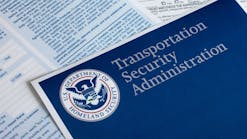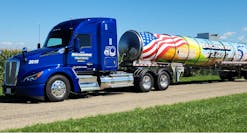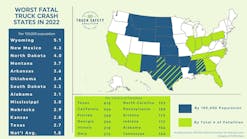The Commercial Vehicle Safety Alliance’s Operation Safe Driver Week is underway.
As part of the annual program launched in 2007, law enforcement personnel are issuing warnings or citations to commercial motor vehicle drivers and passenger vehicle drivers engaging in dangerous driving behaviors through July 18.
According to the National Safety Council (NSC), although Americans have been driving less due to COVID-19 stay-at-home orders, the fatality rate per mile driven increased 14% compared to March 2019. NSC’s traffic fatality data confirms that speeding and reckless driving during the pandemic led to a disproportionate number of crashes and fatalities.
As the number of vehicles on roadways decreased in March and April, the average speed in the five largest US metropolitan areas increased by as much as 75% compared to January and February, CVSA said. And in some of the normally more-congested areas of the country, average speeds increased by as much as 250%. For example, the average 5 pm speed on Interstate 405 in Los Angeles went from 19 mph to 68 mph. In Chicago, the average speed on Interstate 290 more than doubled to 62 mph from 24 mph. In the Washington DC region, average speeds during the evening rush rose from 27 mph to nearly 70 mph on the capital beltway, well above the 55-mph speed limit. And according to the Ohio State Highway Patrol, from March 23 to May 3, tickets issued for driving 100 mph or more increased 53% compared to 2019, even as traffic levels decreased.
To address his disturbing increase in speeding during the pandemic, this year’s Operation Safe Driver Week is focusing on speeding.
Other unsafe driving behaviors enforcement personnel are looking for throughout the week include distracted driving, following too closely and improper lane changes.
Behavioral data from five weeks prior to the first stay-in-place order (Feb 6 to March 15) was analyzed and compared to data generated over the next five weeks (March 16 to April 19)—a time frame in which most shelter-in-place orders were announced. According to the data, speeding was up by 27% on average and hard braking climbed 25%. Phone usage on the nation’s roadways increased in the weeks following the stay-at-home guidelines, up by 38% in mid-April. These behavioral changes contributed to a 20% increase in collisions per million miles traveled since the beginning of the shutdowns.
Contact the agency/department responsible for overseeing commercial motor vehicle safety within your jurisdiction to learn more.









